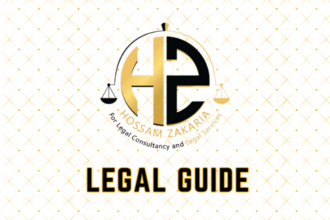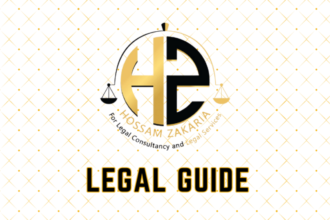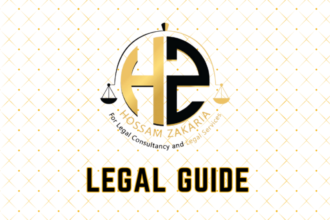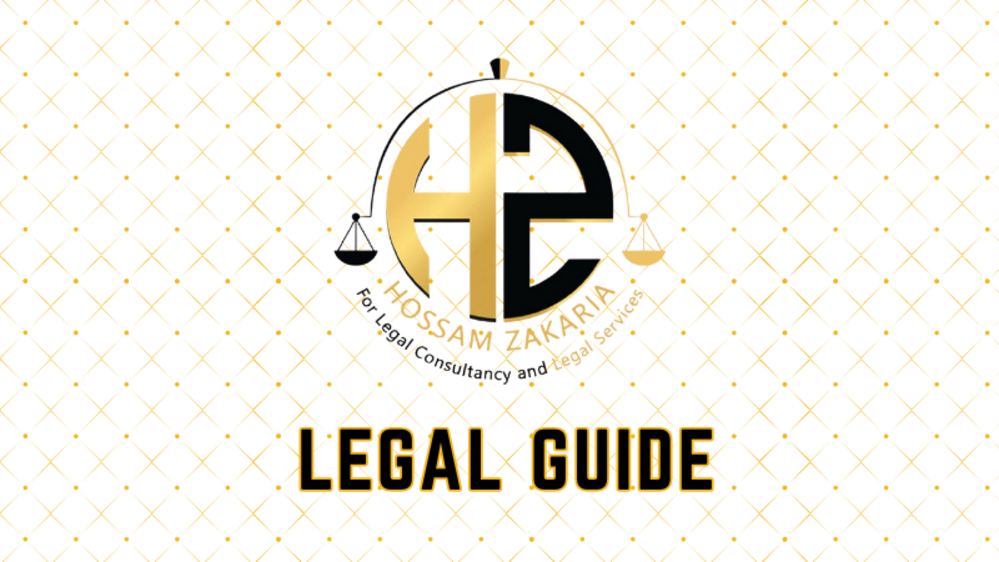Introduction: The Imperative of Robust Air Cargo Licensing and Compliance for UAE Businesses Expanding into Saudi Arabia
With the rapid evolution of GCC cross-border trade, the strategic importance of air cargo operations between the UAE and Saudi Arabia has never been greater. Recent regulatory updates in the Kingdom of Saudi Arabia (KSA) have substantially reshaped the compliance landscape for UAE businesses seeking to operate, invest, or provide logistics services within Saudi borders. This is especially pertinent given the surge in e-commerce, supply chain reconfiguration post-pandemic, and both countries’ bids for global logistics hub status. As a UAE-based organization seeking to access, operate, or expand services in the Saudi air cargo sector, it is essential to understand the complex legal, regulatory, and licensing requirements that now apply—not only to maintain operational continuity, but also to mitigate risk and safeguard your enterprise’s reputation. This consultancy-grade brief analyses the latest regulatory frameworks, licensing requisites, and enforcement priorities of Saudi aviation law as they pertain to foreign (UAE) entities, benchmarking them against relevant UAE legal provisions and providing practical, actionable guidance for seamless, forward-thinking compliance.
This analysis draws upon official publications of the Saudi General Authority of Civil Aviation (GACA), the UAE Ministry of Justice, and contemporaneous regulatory decrees, and is designed for C-suite executives, logistics decision-makers, in-house legal teams, and compliance managers in the UAE with Saudi business ambitions in mind.
Table of Contents
- Overview of the Saudi Air Cargo Regulatory Framework
- Licensing Requirements for UAE Businesses Engaged in Air Cargo in Saudi Arabia
- Key Provisions and Practical Interpretation of GACA Regulations
- Comparison: Pre-2023 vs. Post-2023 Regulatory Landscape
- Case Studies and Illustrative Scenarios
- Risks, Enforcement, and Strategic Compliance Best Practices
- UAE Laws and Their Practical Interplay with Saudi Regulations
- Summary and Forward Guidance for UAE Businesses
Overview of the Saudi Air Cargo Regulatory Framework
The Authority: GACA and Its Expanding Mandate
The Saudi General Authority of Civil Aviation (GACA) stands as the exclusive regulator of all civil aviation activities in Saudi Arabia, empowered under Royal Decree No. M/44 dated 18/07/1429H (2008). GACA’s authority encompasses licensing, oversight, compliance enforcement, and the issuance of detailed regulations covering cargo handling, aviation safety, operator eligibility, and security. Notably, the most recent waves of regulatory reform—including GACA’s “Regulations on Air Cargo Services Operators” and associated implementation circulars updated in 2023—significantly tighten the eligibility and operational requirements for foreign (non-Saudi) companies.
The Legal Landscape as of 2024
The Saudi legal environment is characterized by:
- Mandatory licensing for all entities providing, brokering, or facilitating air freight/cargo services within the Kingdom.
- Stringent fit-and-proper tests for foreign operators, including minimum capital and local representation requirements.
- Enhanced compliance with safety, security, and customs laws—including real-time reporting and data integration with Saudi authorities.
- Regulatory convergence with international aviation standards (ICAO, IATA), as formalized in GACA Circular 38/2023.
Why This Matters for UAE Businesses
Given the scope of these reforms, customary Gulf business privileges (e.g., GCC-wide free establishment) no longer grant automatic access to Saudi air cargo licensing, nor do they guarantee protection from administrative penalties for non-compliance. Moreover, new regulations directly impact joint-venture structuring, distribution agreements, and service outsourcing models commonly adopted by UAE firms.
Licensing Requirements for UAE Businesses Engaged in Air Cargo in Saudi Arabia
Key Licensing Categories
GACA licenses are granted in several categories relevant to UAE interests:
- Air Cargo Agent License (for forwarders and logistics intermediaries)
- Cargo Handling Operator License (for ground/terminal operators)
- Cargo Air Operator Certificate (AOC) (for airlines operating dedicated cargo aircraft)
- Brokers and Multimodal Logistics
Principal Requirements under GACA Regulation 38/2023
- Corporate registration with a Saudi Commercial Registration Certificate (CR)
- Proof of financial solvency (minimum capital thresholds vary by license category; for instance, SAR 5 million is the norm for cargo agents)
- Appointment of a local director with relevant aviation/logistics experience
- Submission of detailed operations manuals, including security plans (must be ICAO- and IATA-compliant)
- Comprehensive insurance coverage (cargo, public liability, staff)
- In the case of GCC corporate shareholders, additional documentation evidencing beneficial ownership and compliance with Saudi anti-concealment laws
Documentary and Procedural Requirements
- Submission of application dossier (hard copy and online via GACA portal)
- Clearances from Saudi Customs, Ministry of Interior (security vetting), and Ministry of Commerce
- Site verification and fit-out inspection for cargo handling licensees
- Renewal cycle: Annually, with quarterly compliance reporting obligations
Note: Failure to submit a complete application package or obtain supporting clearances can result in extended delays, summary rejection, or administrative fines.
Key Provisions and Practical Interpretation of GACA Regulations
Operational and Corporate Obligations
The 2023 GACA Regulations impose:
- Strict separation of cargo and passenger operations—preventing mixed-use of aircraft and facilities without explicit approval.
- Robust background screening for all “key personnel” (defined as directors, nominated post holders, and principal operations managers).
- Explicit anti-money laundering (AML) and counter-terrorist financing controls integrated into standard operating procedures.
- Real-time data interfacing with Saudi Customs and GACA’s electronic clearance system.
- Third-party audits (at GACA’s discretion) and random inspection rights.
Customs and Security Synergies
Unlike historic practice, GACA now requires active customs data sharing and pre-clearance for all inbound and outbound cargo, including dangerous and high-value goods. These requirements apply equally to foreign-owned entities and can necessitate substantial IT system upgrades.
Fees, Penalties, and Enforcement
License fees range from SAR 50,000 (annual renewal) to upward of SAR 150,000 for multi-terminal handlers. Penalties for non-compliance have escalated under Circular 38/2023, including:
- Fixed fines per incident (e.g., SAR 100,000+ for unauthorized cargo operations)
- License suspension or permanent revocation
- Public disclosure of non-compliance for “repeat or gross infractions”
Practical Consultancy Insights
- Pre-licensing Due Diligence: UAE entities must undertake thorough readiness assessments, preferably through local Saudi legal counsel.
- HR and Talent Deployment: Limitation on work permits for expatriates under “Saudization” compliance.
- Structuring for Compliance: Careful review of ownership models and nominee arrangements to avoid Saudi anti-concealment (tasattur) breaches under Ministerial Resolution No. 785/2021.
Comparison: Pre-2023 vs. Post-2023 Regulatory Landscape
| Aspect | Pre-2023 Regime | Post-2023 GACA Regulation 38/2023 |
|---|---|---|
| License Eligibility | GCC companies had broader access; limited local representation requirements | Stricter local incorporation, financial, and directorship mandates; local director must reside in KSA |
| Operational Audits | Primarily scheduled audits, infrequent random inspection | Random and for-cause inspections, mandatory audit cycle |
| Reporting Obligations | Limited data sharing with GACA and Customs | Mandatory real-time electronic reporting, hefty penalties for omission |
| Penalties | Fines generally capped at SAR 10,000–50,000 | Fines escalated to SAR 100,000+, risk of public disclosure and suspension |
| AML/CTF Compliance | Minimal | Explicit procedures and monitoring required |
Visual suggestion: Compliance Checklist Infographic
Placement suggestion: After the comparison table, showcasing actionable steps for companies to verify their readiness prior to license application.
Case Studies and Illustrative Scenarios
Case Study 1: UAE Logistics Firm Establishing a Saudi Subsidiary
Background: A Dubai-based logistics conglomerate seeks to launch a dedicated cargo handling subsidiary at Riyadh’s King Khalid International Airport.
- Compliance challenge: Delayed application due to incomplete “fit and proper” documentation for the appointed local director, and underestimating required minimum capital.
- Outcome: GACA issues administrative warnings, pauses application, requiring resubmission. Meanwhile, the client faced critical delays in project implementation and remedial legal fees for corrective filings.
- Consultancy advice: Begin local director vetting and capital injection process in parallel to pre-licensing due diligence. Engage local Saudi professional advisors at the outset to pre-empt documentation pitfalls.
Case Study 2: Cross-border Cargo Operator Facing Data Compliance Challenges
Background: A UAE-KSA joint venture operating scheduled air cargo services is flagged by Saudi authorities for incomplete electronic cargo manifests and late customs integration.
- Issue: Delayed clearance of time-sensitive shipments, with GACA imposing monetary penalties and warning of licensure review.
- Remediation: Implementation of automated data exchange solutions and staff training on GACA’s reporting formats.
- Consultancy advice: UAE companies must audit internal IT capabilities, appoint compliance officers, and build in-house capacity for 24/7 reporting to Saudi authorities.
Case Study 3: Risk Management—Anti-Concealment Law Violations
Background: UAE shareholders use nominee structures to fulfill minimum Saudi director requirements, but fail to appoint executives with substantive powers or in-KSA residence.
- Risk: Breach of Saudi Anti-Concealment Law (tasattur), enforced under Ministerial Resolution No. 785/2021, exposing all parties to criminal proceedings and permanent business shutdown.
- Remediation: Restructuring of shareholding and executive appointment, with proactive disclosure to GACA and authorities.
- Consultancy insight: Engage Saudi-qualified legal counsel to validate shareholding and governance models before license submission, ensuring substantial management control resides locally.
Risks, Enforcement, and Strategic Compliance Best Practices
Risks of Non-Compliance: Financial, Corporate, and Reputational
- Financial penalties—fines can significantly erode project viability.
- Operational risk—license suspension or revocation, risking permanent loss of access to the critical Saudi market.
- Criminal/civil liability—under Saudi anti-concealment, AML, and Customs regulations.
- Reputation damage—public disclosure obligations for repeat violations and possible blacklisting.
Compliance Strategy: From Application to Ongoing Operations
- Readiness audits: Commission pre-application legal and operational readiness assessments in both the UAE and KSA.
- Process mapping: Develop a definitive compliance roadmap covering license application, renewal cycles, and reporting.
- Training: Continuous employee education on Saudi regulatory change, IT systems for real-time reporting, and incident response.
- Stakeholder engagement: Maintain direct communication channels with GACA, Saudi Customs, and Ministry of Commerce.
Visual suggestion: Process Flow Diagram
Placement suggestion: After this section, illustrating the sequential steps from initial business planning through post-licensing compliance in Saudi Arabia.
UAE Laws and Their Practical Interplay with Saudi Regulations
Key UAE Legal Provisions of Relevance
- Federal Decree-Law No. (31) of 2021—UAE’s new Criminal Code, particularly with respect to corporate and anti-money laundering controls
- Cabinet Resolution No. 57 of 2020—Beneficial Ownership and Economic Substance
- UAE Civil Aviation Law (Federal Law No. 20 of 1991, as amended)—Requirements for UAE-registered air operators seeking cross-border approvals
Interplay and Practical Alignment
UAE companies seeking Saudi licensing must proactively align internal policies with the Kingdom’s more expansive regulatory reach. This includes, but is not limited to:
- Conducting cross-border compliance due diligence on all routes, not merely the “on-shore” Saudi activity
- Appointing UAE-based compliance officers to oversee alignment with both territories’ AML, security, and reporting regimes
- Ensuring all joint ventures are structured to meet both Saudi and UAE “substantial activity” and beneficial ownership rules—mitigating the risk of cross-jurisdictional administrative penalties
Despite partial harmonization under GCC frameworks, local practice controls. Strategic legal advisory, both in the UAE and KSA, remains indispensable throughout every phase of market entry and ongoing operations.
Summary and Forward Guidance for UAE Businesses
The evolving landscape for air cargo licensing and compliance in Saudi Arabia presents both formidable challenges and unprecedented opportunities for UAE-based enterprises. The clear message from recent GACA reforms is that detailed, forward-planning legal compliance—spanning licensing, operational reporting, and local governance—is no longer optional but a necessity for sustainable market access.
Key takeaways include:
- Early Legal and Operational Due Diligence: Engage in readiness assessments before committing to Saudi market entry.
- Proactive Executive Appointments and Organizational Transparency: Structure leadership and shareholding to withstand regulatory scrutiny.
- Investment in IT and Compliance Systems: Technology and robust processes are non-negotiable given Saudi digital reporting mandates.
- Continuous Education and Monitoring: Keep teams informed of regulatory updates from GACA, Saudi Customs, and both UAE and Saudi legislative bodies.
Looking ahead, Saudi Arabia’s ambition to become a Middle Eastern aviation powerhouse will likely mean further tightening of compliance standards and greater scrutiny of foreign operators. UAE businesses that harness strategic, cross-jurisdictional legal advice—and who invest in robust compliance mechanisms—will position themselves as preferred partners for the Saudi market’s next decade of accelerated growth.
For tailored guidance or to commission a readiness assessment, contact our UAE legal consultancy team with deep in-country expertise in Saudi regulatory navigation and cross-border aviation law.



